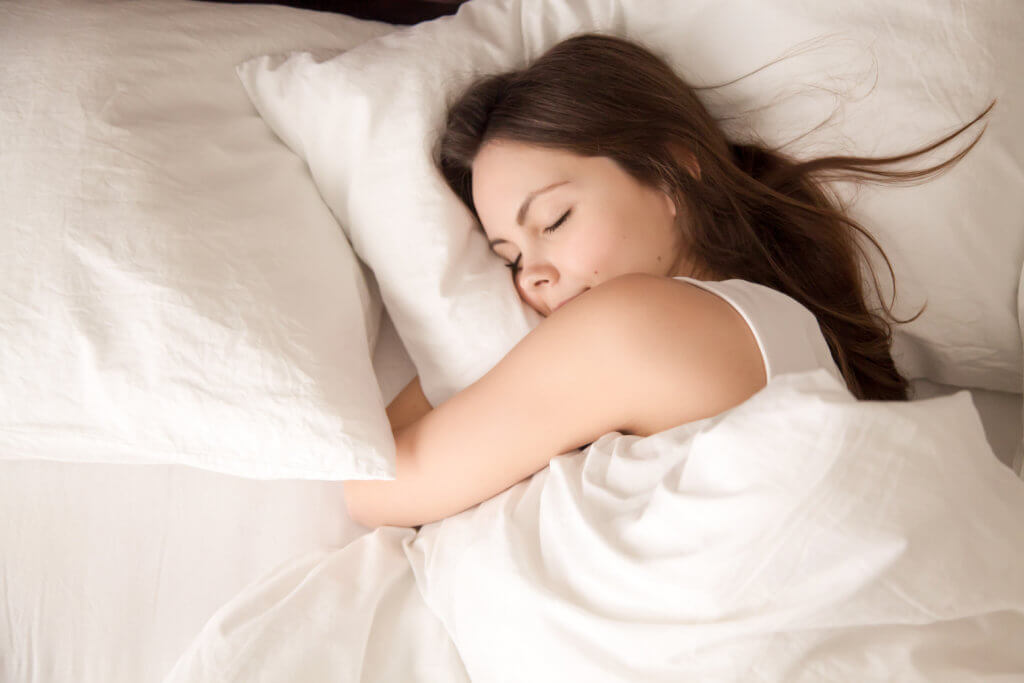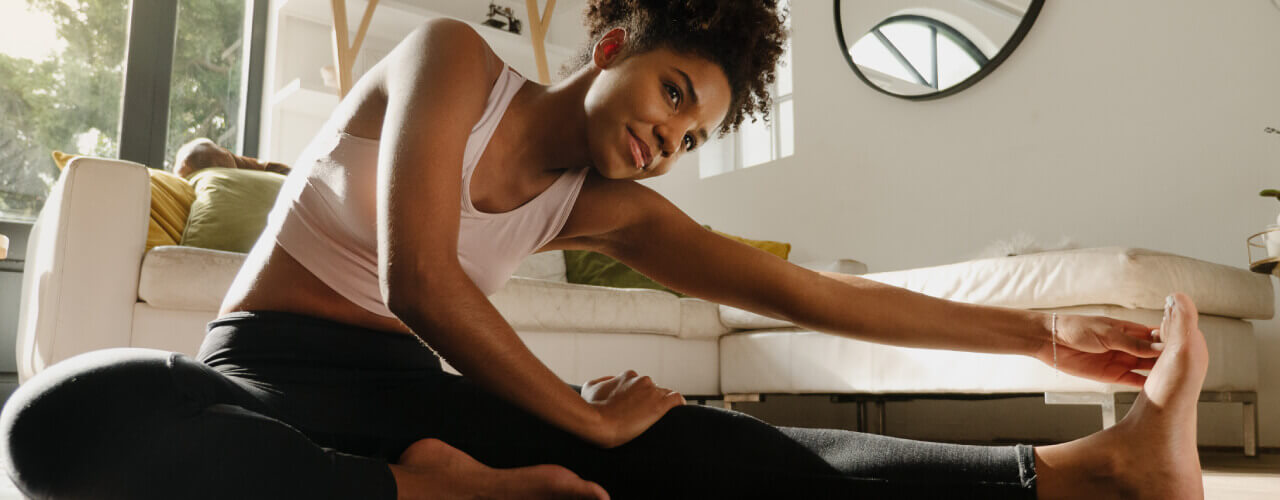There is truly nothing better than a night of good sleep. That feeling of being fully rested, waking up feeling refreshed and ready to start the day. It’s unfortunate that this feeling seems to fade as we get older, and our sleep becomes less and less restful and satisfying. There are many reasons that this could be the case, whether it be emotional turmoil, body aches and pains, poor sleep posture, etc.
Here are some tips that could help to improve your sleep quality:
1. Laying on Your Side
It’s proven that the best sleep posture is laying on your side with a small pillow or cushion between your knees. This position allows your hips and knees to be in an aligned, neutral position and takes the strain off of the lower back and pelvis. When sleeping on your back, the weight of your body tilts the sacrum and pelvis which increases the strain around your sacroiliac joints. Laying on your tummy puts great strain on your neck since you have to twist it left or right. It’s also common in this position for people to lift a leg up which throws the pelvic and hip alignment off. This can all cause pain while sleeping, but can also cause pain throughout the day.
2. Relaxing Before Bedtime
It’s helpful to prepare your mind for sleep as well as your body. This could mean different things for different people. It might be helpful to switch off the screens an hour before bed, taking a hot shower or bath to wind down, reading a book, enjoying a cup of tea, doing some guided sleep meditation, etc. There are many different ways to prepare your mind and body for sleep. This will allow you to get the most out of your sleep and also help you to fall asleep sooner. We are bombarded with stimuli all day, and this can cause anxiety and make us feel overwhelmed. Before bed is a great time to unwind after a long day and prepare ourselves to do it again the following day.
3. Stretching Regularly
Pain and discomfort leaves your muscles feeling stiff. This only leads to more pain, and more discomfort and becomes a vicious cycle! Making time to stretch and gain flexibility can help alleviate this pain. In order to get the most out of stretching, it’s best to hold a single position for as long as possible. It’s great to aim for between 1-5 minutes.
4. Aromatherapy
Aromatherapy can really help aid in the sleep process. Lavender is an essential oil that is best known to help with relaxation and sleep. You can incorporate this practice into your routine many different ways. You could get an oil diffuser and put it next to your bed, you could put some lavender on your pillow or onto a hand towel to place on your pillow, or you could get a roller version to place directly on your skin. This can help you fall asleep and stay asleep.
5. Skipping that Nighttime Drink
Studies have shown that while alcohol may help people fall asleep more quickly, it can be disruptive later in your sleep cycle as the alcohol metabolizes. It’s been shown to decrease REM sleep which is the deepest sleep that we get during the night and is the most mentally restorative. Disruptions to REM sleep could cause you to wake up feeling not well rested and can even affect your memory if used consistently as a sleep aid. While it may seem like an effective way to kick off your night’s sleep, you are disrupting your sleep cycle without even realizing it.
6. Planning Earlier Workouts
Working out before bed might not be the best idea for your sleep quality. While you might think it would be just the trick to tire you out, exercise actually has the opposite effect. It actually raises your body temperature, speeds up your heart rate, and stimulates your nervous system. Exercising intensely too close to bed, for some people, can lead to interrupted sleep. Exercises can also create tense muscles, depending on the activity. It would be much more beneficial to stretch or practice some diaphragmatic breathing before heading to bed.
Speak with your local PT
There are certain issues that can keep you from achieving your best night’s sleep that won’t be solved with a hot bath or your sleeping position. Frequent urination is a very common pelvic dysfunction that keeps people from being able to sleep through the night along with chronic mystery pain. If this sounds like you, your best option will be to consult with a physical therapist or a pelvic floor physical therapist. They can alleviate the dysfunction, allowing you to get a better night’s sleep as well as offer some more individualized tips and suggestions.
Interested? Contact Us Today!
Tags: health and wellness, sleep




